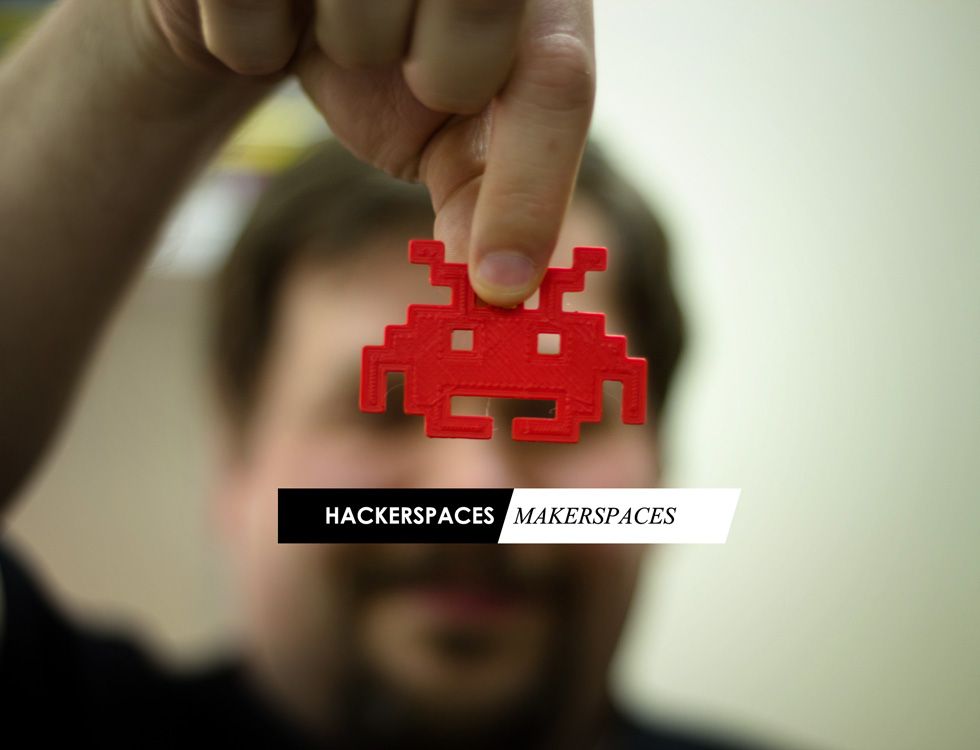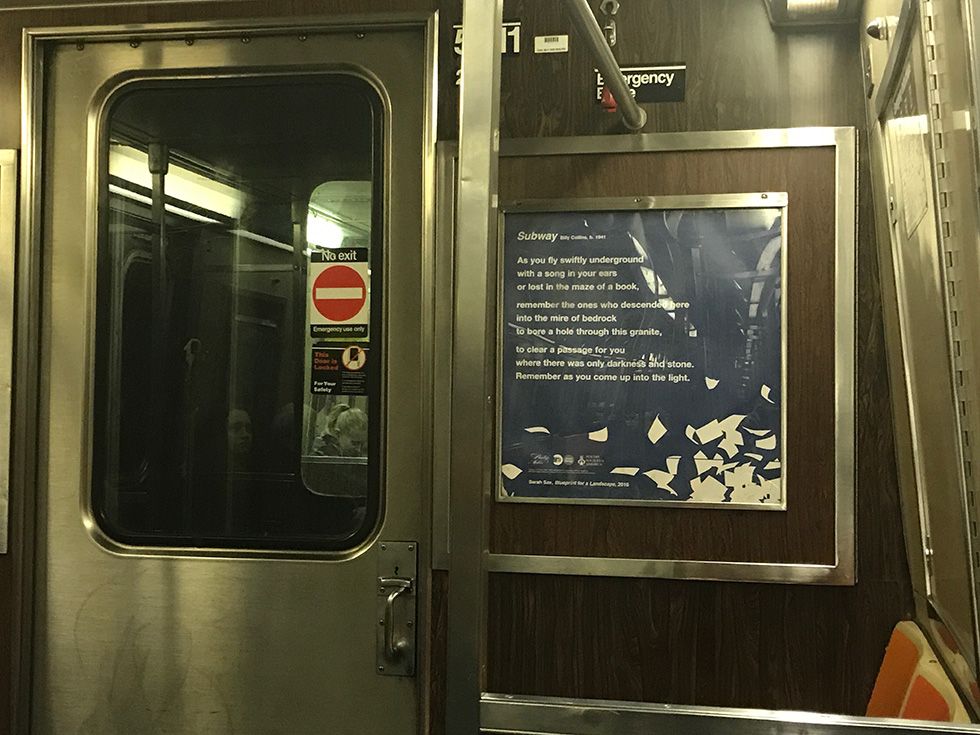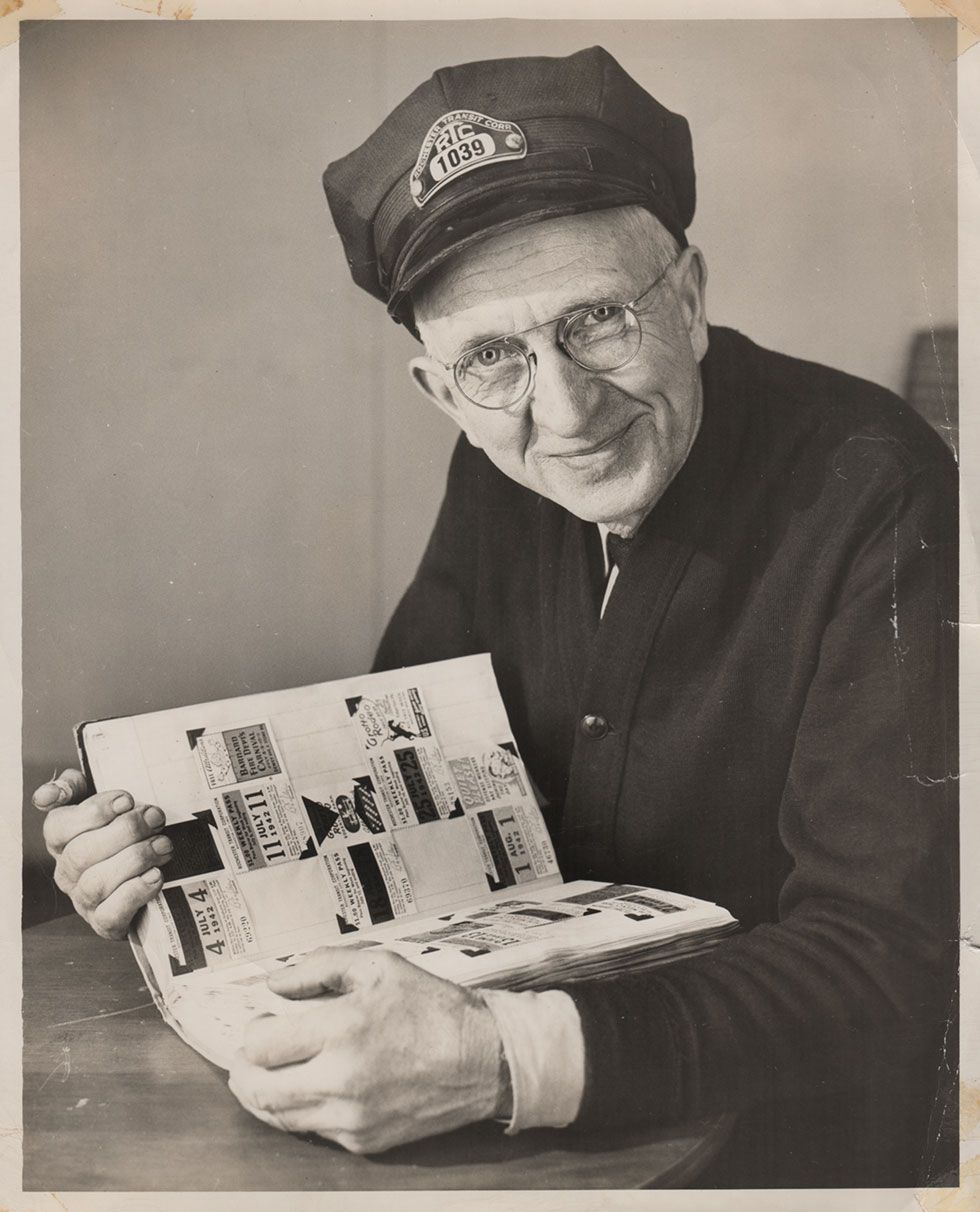This article was scraped from Rochester Subway. This is a blog about Rochester history and urbanism has not been published since 2017. The current owners are now publishing link spam which made me want to preserve this history.. The original article was published September 04, 2014 and can be found here.
![Community 'makerspaces' are popping up all over the country with two right here in Rochester; Makerspace and Interlock. [PHOTO: Brian Boucheron, Flickr]](https://senseofplace.dev/content/images/photos/hackerspaces-makerspaces-01.jpg)
The following is a guest post submitted by Joel Helfrich .
Submit your story today .
Born from a new age of information sharing, as well as a recognized need for communal spaces where people can "imagine, innovate, and inspire" come makerspaces. Makerspaces (and hackerspaces) are not a new idea. However, they are fairly new in the United States. But as one makerspace/hackerspace proclaimed, these "spaces" are catching on - and there are more being established on a regular basis. Including a few right here in Rochester...
![These community spaces are like the libraries, parks and 'commons' of the twenty-first century. [PHOTO: Brian Boucheron, Flickr]](https://senseofplace.dev/content/images/photos/hackerspaces-makerspaces-02.jpg)
These are spaces we--builders/designers/tinkerers/creative types--like. They are spaces where instruments of history, in the form of tools such as lathes and table saws, as well as ham radio equipment, are utilized alongside the latest knowledge and technologies, including 3D printing.
In the United States, the Rusty Lake Belt dominates in the formation and expansion of what are essentially publicly accessible creative spaces: Syracuse Innovators Guild, Squidwrench (Poughkeepsie), Erie Makerspace, Milwaukee Makerspace, The Makers Alliance (Cleveland), SYN/HAK (Akron), i3Detroit, Lansing Makers Network, and DHMN (Appleton, Wisconsin), to name a few.
In a way, these spaces are the libraries and parks and "commons" of the twenty-first century.
![Makerspace on Saint Paul Street encourages learning, creativity and collaboration by providing the community with low-cost access to a wide variety of sophisticated tools, workspace, and a wide variety of art, craft and technology classes. [PHOTO: RochesterMakerspace.org]](https://senseofplace.dev/content/images/photos/hackerspaces-makerspaces-05.jpg)
For me, these places are the technology and woodshops of my youth--places where I learned how to make stuff like that wood tic-tac-toe board with plastic cover for the holes in the side that stored marbles, a plastic calculator stand, a wood shelf, a metal armed contraption that was able to grasp and move small items, a flashlight, or the alarm system that was surprisingly loud. I went to summer camp as a child to build some of these items, as well as ceramic pottery, continued building and creating in "technology" and shop classes during school, but then stopped having these opportunities in high school.
It is my firm belief that at some point in our lives our inherent, creative energies as artists get suppressed or worse, crushed. Few people seem to restart their artistic and creative passions.
![Interlock on East Main Street is a non-profit organization that provides space for its members and the local community to develop and share their interests in science, technology, art, and culture. [PHOTO: Brian Boucheron, Flickr]](https://senseofplace.dev/content/images/photos/hackerspaces-makerspaces-06.jpg)
But there are efforts underway to keep humans thinking, creating, tinkering, inventing, and "doing" in ways that are useful and beneficial. I had a great experience last Thursday night when I visited Interlock Rochester

, one of two local hackerspaces/makerspaces.
I was there during Interlock's free, open-to-the-public 3D printing event at their space in the Hungerford Building

. Interlock has about 30 members paying dues of $25 (for students) or $50 per month who utilize the various equipment and facilities: electronics stations, a ham radio shack, woodworking tools, 3D printers, et cetera.
![A make-it-yourself 3D printer! [PHOTO: Joel Helfrich]](https://senseofplace.dev/content/images/photos/hackerspaces-makerspaces-03.jpg)
While at Interlock, I met Skip Meetze, a retired systems engineer who once worked for Xerox. He is a self-professed "maker," not a "software geek." But he is certainly an inventor. He built his own 3D printer from a kit for $500, but by personalizing and improving the design likely has $1000 total invested in it. When I visited Interlock, Skip and I discussed the ipad stand

he developed, open space hardware (see www.thingiverse.com

for example), especially the HandleStand he printed on his 3D printer, and RepRaps

(Replicating Rapid Prototypers).
[ Read more about Meetze's ideas on "making"

]
![I promised to return soon to Interlock Rochester, possibly to print some much-needed shark-shaped chip clips [PHOTO: Joel Helfrich]](https://senseofplace.dev/content/images/photos/hackerspaces-makerspaces-04.jpg)
I promised to return soon to Interlock Rochester, possibly to print some much-needed shark-shaped chip clips

.
![Rochester Makerspace is like a gym membership for people who like to create and make, says co-organizer Wyatt McBain. [IMAGE: Rochester Makerspace]](https://senseofplace.dev/content/images/photos/hackerspaces-makerspaces-08.jpg)
Wyatt McBain, one of the co-organizers of Rochester Makerspace

(formed last year) told me that his group is all about tools and makers. The organizers have created an all-inclusive space in which they ultimately hope that children will participate in making, 3D printing, and other activities.
According to McBain, Rochester Makerspace is like a "gym membership for people who like to create and make." The founders of the group envision a space where people can "share knowledge and learn within a diverse community."
"That there are now two spaces in Rochester where the general public can tinker, build, create, invent, and learn is amazing," says McBain, "especially given that Rochester, like many places along the Rusty Lake Belt, is a 'smaller' city."
![What separates Rochester Makerspace from Interlock Rochester is the former's emphasis on making versus hacking. Rochester Makerspace has two spaces within the same building on St. Paul Street, one of which is a 1000 square foot woodshop. [IMAGE: Rochester Makerspace]](https://senseofplace.dev/content/images/photos/hackerspaces-makerspaces-07.jpg)
What separates Rochester Makerspace from Interlock Rochester is the former's emphasis on making versus hacking. In fact, Rochester Makerspace has two spaces within their building at 850 Saint Paul Street

in Northeast Rochester, one of which is a 1000 square foot woodshop. Rochester Makerspace is also all volunteer-run, with its non-profit status pending.
The group currently has 25 dues-paying members (dues are $40/month), but courageously hopes to have 100 people signed up by this fall, as well as a great amount of planned programming and classes.
McBain--along with Rob Roll, an at home machinist and hobbiest, and several other interested folks--hopes that Rochester Makerspace can eventually provide the community with something similar to Artisan's Asylum

in Somerville, Massachusetts, a publicly accessible creative space that in the last three years has gone from a 1000 square foot operation to a 30,000 square foot warehouse with paid staff, individual rent-paying tenants, 50 classes per month, and the cooperation of the city.
Although there are members at most hackerspace/makerspace locations who pay the bills and fund the purchase on occasion of new machines and tools, oftentimes these organizations have free events where you can simply show up and do/make something. Thursday nights are "open" nights at Makerspace from 6:00 p.m. until about 10:00 p.m. - meaning the public is invited to come to see the space, meet other "makers," or bring their own projects to work on. Some also have classes on 3D printing, cabinetmaking, CAD programs, and way more.
My eight-year-old daughter and I recently visited Rochester Makerspace. She is widely creative and loves math and building things. So we tinkered around and learned a great deal from a Snap Circuits Jr. 100 Experiments kit

.
I encourage you to join in the fun... Find a makerspace or hackerspace near you

. * * *
For more information on these exciting spaces, see this recent article

from Make magazine. * * *
About Joel Helfrich:
Joel Helfrich is a father, educator, historian, and activist who works on animal rights, environmental, historic and sacred sites preservation, and social justice issues.


